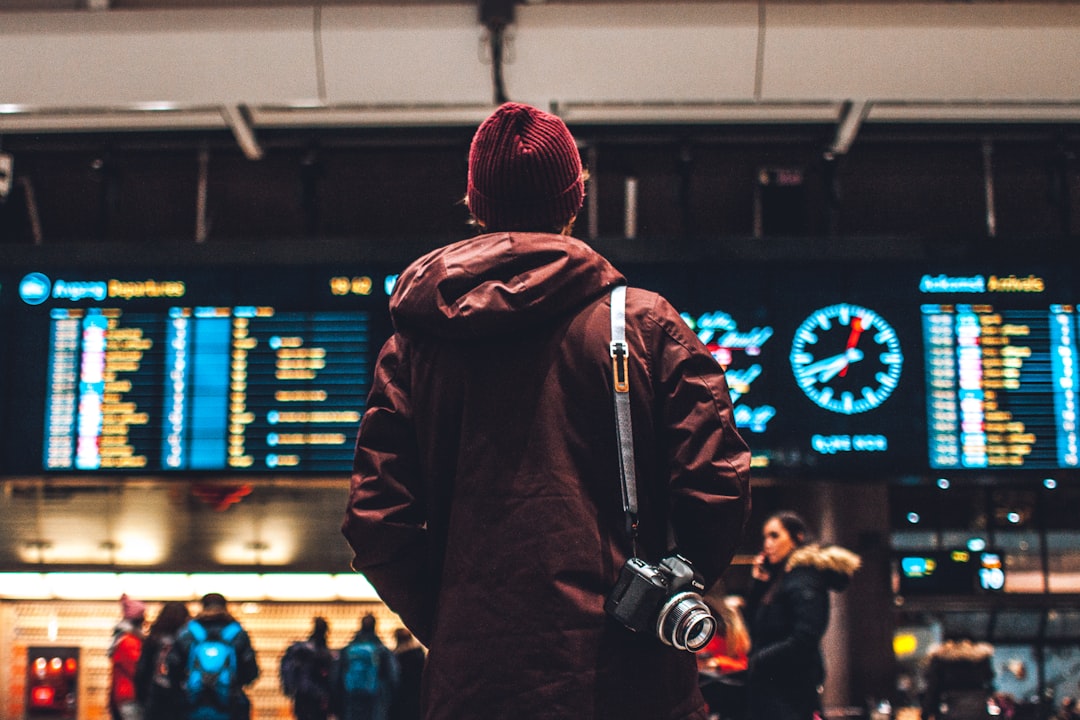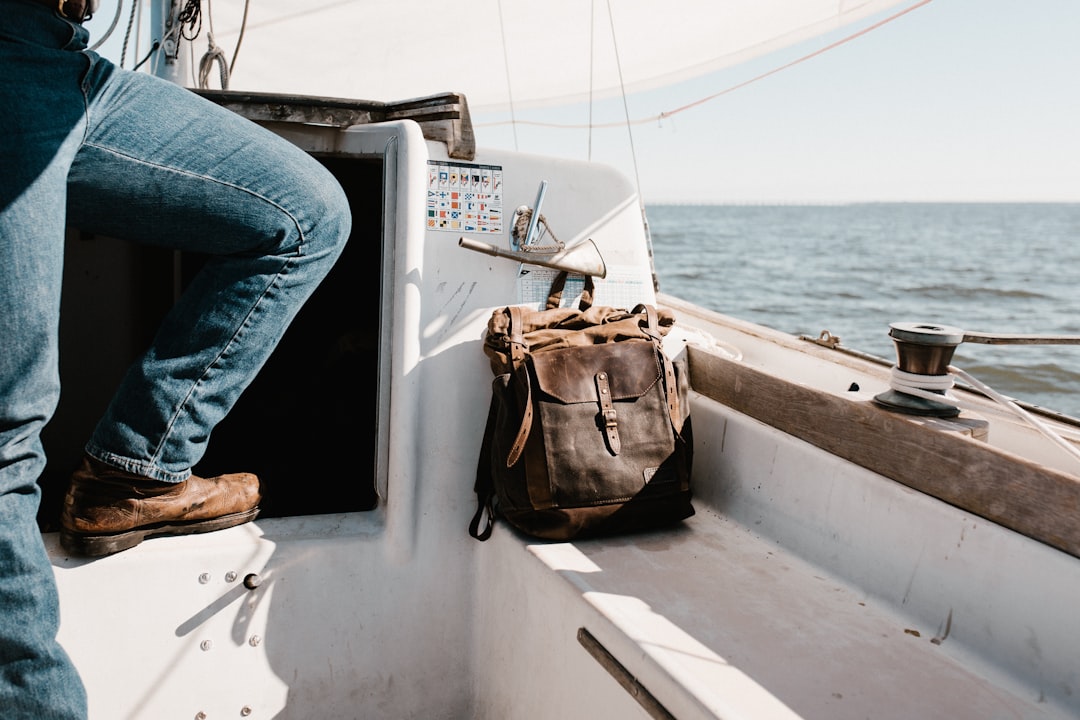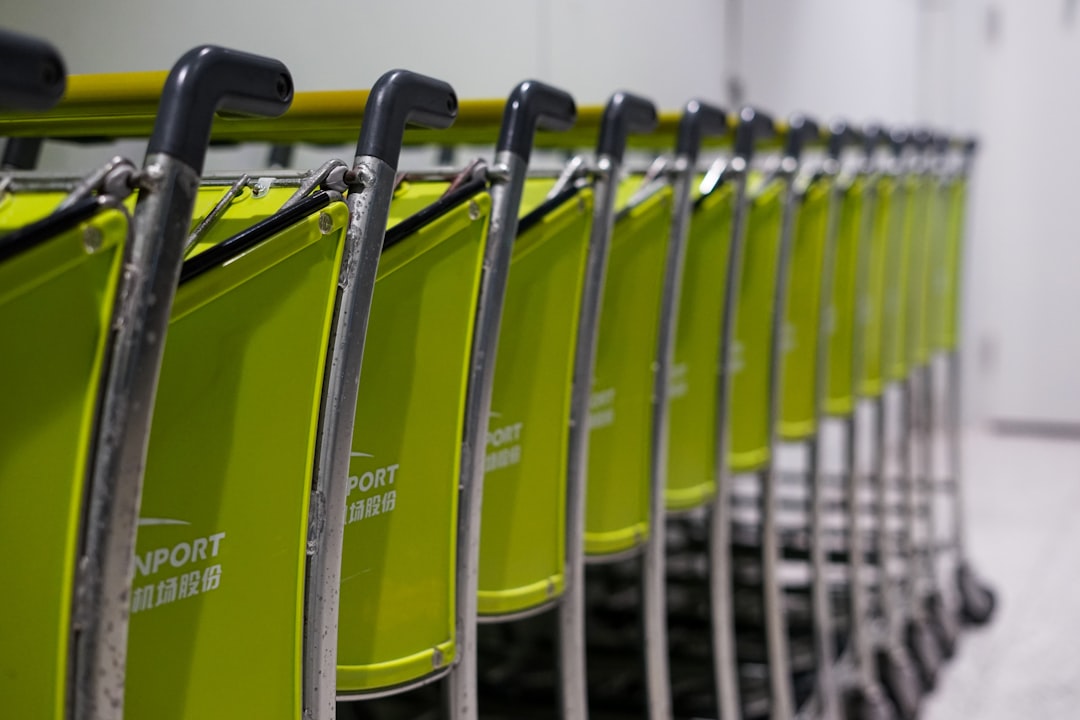Reuniting with Your Lost Luggage A Traveler's Guide to Navigating Airline Policies and Compensation Claims
Reuniting with Your Lost Luggage A Traveler's Guide to Navigating Airline Policies and Compensation Claims - Familiarizing Yourself with Airline Policies
As a frequent traveler, it is crucial to familiarize yourself with the various airline policies regarding lost or delayed luggage.
In the event your luggage goes missing, it is essential to act quickly and follow the appropriate steps to file a claim and potentially receive compensation.
Airlines have specific procedures and guidelines in place, and understanding these can greatly improve your chances of a successful resolution.
Staying informed and proactive when dealing with lost or delayed luggage can alleviate the stress and ensure you receive the support and compensation you are entitled to under the relevant regulations.
It is a wise practice for all travelers to be aware of their rights and the airline's obligations in such situations.
Airline policies can vary significantly, even within the same alliance or region.
For instance, while most US-based airlines offer up to $3,500 in compensation for lost luggage, European airlines typically have a lower limit of €1,300 (~$1,400) under the Montreal Convention.
Interestingly, airlines are not required to compensate passengers for delayed or damaged electronics, such as laptops or smartphones, unless the passenger can prove the device was in their checked luggage.
This often leads to disputes between passengers and airlines.
Contrary to popular belief, airlines are not obligated to provide hotel accommodations or meals if a flight is delayed or canceled due to weather or other uncontrollable factors.
Passengers may be responsible for these expenses, unless the airline chooses to offer such amenities.
Some airlines, like JetBlue, have implemented a "second bag free" policy for certain fare classes, bucking the industry trend of charging fees for additional checked luggage.
This can be a pleasant surprise for cost-conscious travelers.
Surprisingly, the amount of compensation for lost or delayed luggage is not directly proportional to the value of the contents.
Airlines use a formula based on weight and class of service, which can result in payouts that seem inadequate for valuable items.
While most airlines have strict policies against bringing certain items in carry-on or checked luggage, such as liquids over 4 oz, there are exceptions.
For example, some airlines allow passengers to bring small amounts of duty-free liquor purchased at the airport.
Reuniting with Your Lost Luggage A Traveler's Guide to Navigating Airline Policies and Compensation Claims - Filing a Claim for Lost Luggage
In the ever-evolving world of air travel, the issue of lost luggage continues to be a concern for many passengers.
As of April 2024, airlines remain legally obligated to compensate travelers for lost, damaged, or delayed baggage under the Montreal Convention.
The maximum compensation can reach up to $170,000 per passenger, though airlines often offer additional packages up to $3,000 depending on the credit card used.
To receive this compensation, passengers must promptly file a claim with the airline and provide supporting documentation.
The process can vary, but typically involves completing a form and submitting it to the baggage claim department.
Airlines are required to respond within 24 hours, with resolutions ranging from reuniting the passenger with their luggage to providing monetary compensation for the lost items.
Airlines are legally required to compensate passengers up to $170,000 per person for lost, damaged, or delayed baggage under the Montreal Convention, which governs international air travel.
In addition to the Montreal Convention compensation, many airlines offer their own compensation packages of up to $3,000 per passenger, depending on the credit card used to purchase the flight.
Interestingly, airlines are not obligated to compensate passengers for damaged or lost electronic devices, such as laptops or smartphones, unless the passenger can prove the items were in their checked luggage.
The process of filing a lost luggage claim typically involves completing a form provided by the airline and submitting it to the baggage claim department, which must respond within 24 hours.
Contrary to common belief, airlines are not required to provide hotel accommodations or meals if a flight is delayed or canceled due to weather or other uncontrollable factors, unless the airline chooses to offer such amenities.
Surprisingly, the amount of compensation for lost or delayed luggage is not directly proportional to the value of the contents, as airlines use a formula based on weight and class of service to determine the payout.
While most airlines have strict policies against bringing certain items in carry-on or checked luggage, such as liquids over 4 oz, there are exceptions, like the ability to bring small amounts of duty-free liquor purchased at the airport.
Reuniting with Your Lost Luggage A Traveler's Guide to Navigating Airline Policies and Compensation Claims - Documenting Your Belongings for Compensation
As airlines continue to face challenges with lost or delayed luggage, it is crucial for travelers to document their belongings thoroughly.
By keeping detailed inventories and receipts, passengers can strengthen their compensation claims should their luggage go missing.
Airlines are legally required to provide up to $170,000 per person for lost, damaged, or delayed baggage under the Montreal Convention, in addition to their own compensation packages of up to $3,000 depending on the credit card used.
However, the process can be complex, and airlines are not obligated to compensate for lost electronic devices unless proven to be in the checked luggage.
Staying organized and informed about airline policies is key to ensuring a smooth resolution when dealing with the frustration of lost or delayed luggage.
Airlines must pay up to $3,800 per passenger for lost or damaged domestic luggage and about $1,750 for international luggage under the Montreal Convention.
Passengers are entitled to receive reasonable incidental expenses they incur due to delayed baggage, up to a maximum liability of $3,300 from the airline.
Airlines are not required to compensate passengers for damaged or lost electronic devices, such as laptops or smartphones, unless the passenger can prove the items were in their checked luggage.
Contrary to popular belief, the amount of compensation for lost or delayed luggage is not directly proportional to the value of the contents, as airlines use a formula based on weight and class of service.
While most airlines have strict policies against bringing certain items in carry-on or checked luggage, some make exceptions, such as allowing passengers to bring small amounts of duty-free liquor purchased at the airport.
Interestingly, airlines are not obligated to provide hotel accommodations or meals if a flight is delayed or canceled due to weather or other uncontrollable factors, unless the airline chooses to offer such amenities.
Airlines are required to disclose their baggage policies, including those relating to fees and lost baggage compensation, under regulations set by the Department of Transportation.
Surprisingly, some airlines, like JetBlue, have implemented a "second bag free" policy for certain fare classes, going against the industry trend of charging fees for additional checked luggage.
Reuniting with Your Lost Luggage A Traveler's Guide to Navigating Airline Policies and Compensation Claims - Utilizing Travel Insurance for Additional Coverage
Travel insurance can provide valuable supplementary coverage for lost, stolen, or damaged luggage during travel.
Policies often include baggage insurance, which may reimburse travelers for essential items purchased while waiting for their luggage to be returned.
When dealing with lost or delayed luggage, travelers are advised to report the incident to the airline immediately and keep all receipts, as these can support a claim under their travel insurance policy.
While airlines have their own compensation guidelines, travel insurance can offer an additional layer of financial protection for travelers facing the inconvenience of lost or delayed belongings.
Travel insurance policies can provide up to $1,000 or more in compensation for lost, stolen, or damaged luggage, depending on the policy.
Some travel insurance policies offer 24/7 assistance to help travelers navigate the complex claims process with airlines, which can be invaluable when dealing with lost luggage.
Surprisingly, while airlines are liable for compensation in case of lost luggage, the amount may be limited, whereas travel insurance can provide additional financial protection beyond the airline's compensation.
Travelers can purchase travel insurance that includes specific coverage for high-value items, such as electronics, which may not be covered by the airline's baggage policies.
Unlike airlines, travel insurance policies typically do not have strict limits on the types of items that can be claimed, providing more flexibility for reimbursement of lost or damaged belongings.
Travel insurance can reimburse travelers for essential items purchased while waiting for lost or delayed luggage to be returned, helping to mitigate the inconvenience and expenses incurred.
Interestingly, some travel insurance policies offer coverage for delayed or missed connecting flights, providing additional protection beyond the airline's responsibilities.
Contrary to common belief, travel insurance can provide coverage for pre-existing medical conditions, subject to the policy's specific terms and conditions.
Surprisingly, travel insurance may offer protection against trip cancellations or interruptions due to unforeseen events, such as natural disasters or political unrest, which airlines may not be obligated to compensate.
Reuniting with Your Lost Luggage A Traveler's Guide to Navigating Airline Policies and Compensation Claims - Navigating the Claims Process Efficiently
Navigating the claims process for lost or damaged luggage requires understanding the specific policies of each airline.
The process typically involves filing a report with the airline, obtaining a Property Irregularity Report, and providing supporting documentation to receive compensation.
New technologies like RFID tracking are helping reduce lost luggage incidents, but staying organized, persistent, and familiar with passenger rights is crucial for a smooth resolution.
Airlines are legally obligated to compensate passengers up to $170,000 per person for lost, damaged, or delayed baggage under the Montreal Convention, which governs international air travel.
In addition to the Montreal Convention compensation, many airlines offer their own compensation packages of up to $3,000 per passenger, depending on the credit card used to purchase the flight.
Airlines are not obligated to compensate passengers for damaged or lost electronic devices, such as laptops or smartphones, unless the passenger can prove the items were in their checked luggage.
The amount of compensation for lost or delayed luggage is not directly proportional to the value of the contents, as airlines use a formula based on weight and class of service to determine the payout.
While most airlines have strict policies against bringing certain items in carry-on or checked luggage, there are exceptions, such as the ability to bring small amounts of duty-free liquor purchased at the airport.
Airlines are not required to provide hotel accommodations or meals if a flight is delayed or canceled due to weather or other uncontrollable factors, unless the airline chooses to offer such amenities.
Travelers can purchase travel insurance that includes specific coverage for high-value items, such as electronics, which may not be covered by the airline's baggage policies.
Unlike airlines, travel insurance policies typically do not have strict limits on the types of items that can be claimed, providing more flexibility for reimbursement of lost or damaged belongings.
Travel insurance can reimburse travelers for essential items purchased while waiting for lost or delayed luggage to be returned, helping to mitigate the inconvenience and expenses incurred.
Some travel insurance policies offer coverage for delayed or missed connecting flights, providing additional protection beyond the airline's responsibilities.
Reuniting with Your Lost Luggage A Traveler's Guide to Navigating Airline Policies and Compensation Claims - Emerging Technologies Reducing Luggage Loss Incidents
Emerging technologies are being deployed to address the longstanding issue of luggage loss.
Airlines and airports are implementing AI-powered baggage reconciliation systems and automated sorting systems to track luggage more effectively and reduce the risk of mishandling.
While the rate of mishandled bags doubled in 2022, experts believe further enhancements to digital baggage tracking, including AI-enabled rerouting, will soon make it easier for passengers to be reunited with their lost bags.
As the industry continues to grapple with this challenge, travelers can also take proactive steps, such as using electronic luggage tags, to keep better tabs on their belongings during the journey.
AI-powered baggage reconciliation systems using RFID tags are eliminating the need for passengers to queue up at airports to check in their luggage.
Automated baggage sorting systems are being developed to reduce the risk of lost luggage.
In 2022, the rate of mishandled luggage doubled to 76 bags per thousand passengers, leading to frustration and inconvenience for travelers.
Airlines are liable for compensation in case of lost luggage, with the amount varying depending on the airline's policies and the Montreal Convention guidelines for international flights.
AI-enabled baggage rerouting is an enhancement to digital baggage tracking systems, allowing airlines to track bags more accurately.
Contrary to popular belief, airlines are not obligated to compensate passengers for damaged or lost electronic devices, such as laptops or smartphones, unless the passenger can prove the items were in their checked luggage.
Surprisingly, the amount of compensation for lost or delayed luggage is not directly proportional to the value of the contents, as airlines use a formula based on weight and class of service.
While most airlines have strict policies against bringing certain items in carry-on or checked luggage, there are exceptions, such as allowing passengers to bring small amounts of duty-free liquor purchased at the airport.
Some airlines, like JetBlue, have implemented a "second bag free" policy for certain fare classes, bucking the industry trend of charging fees for additional checked luggage.
Travel insurance can provide up to $1,000 or more in compensation for lost, stolen, or damaged luggage, offering an additional layer of financial protection beyond the airline's compensation.
Interestingly, travel insurance policies typically do not have strict limits on the types of items that can be claimed, providing more flexibility for reimbursement of lost or damaged belongings compared to airline policies.


